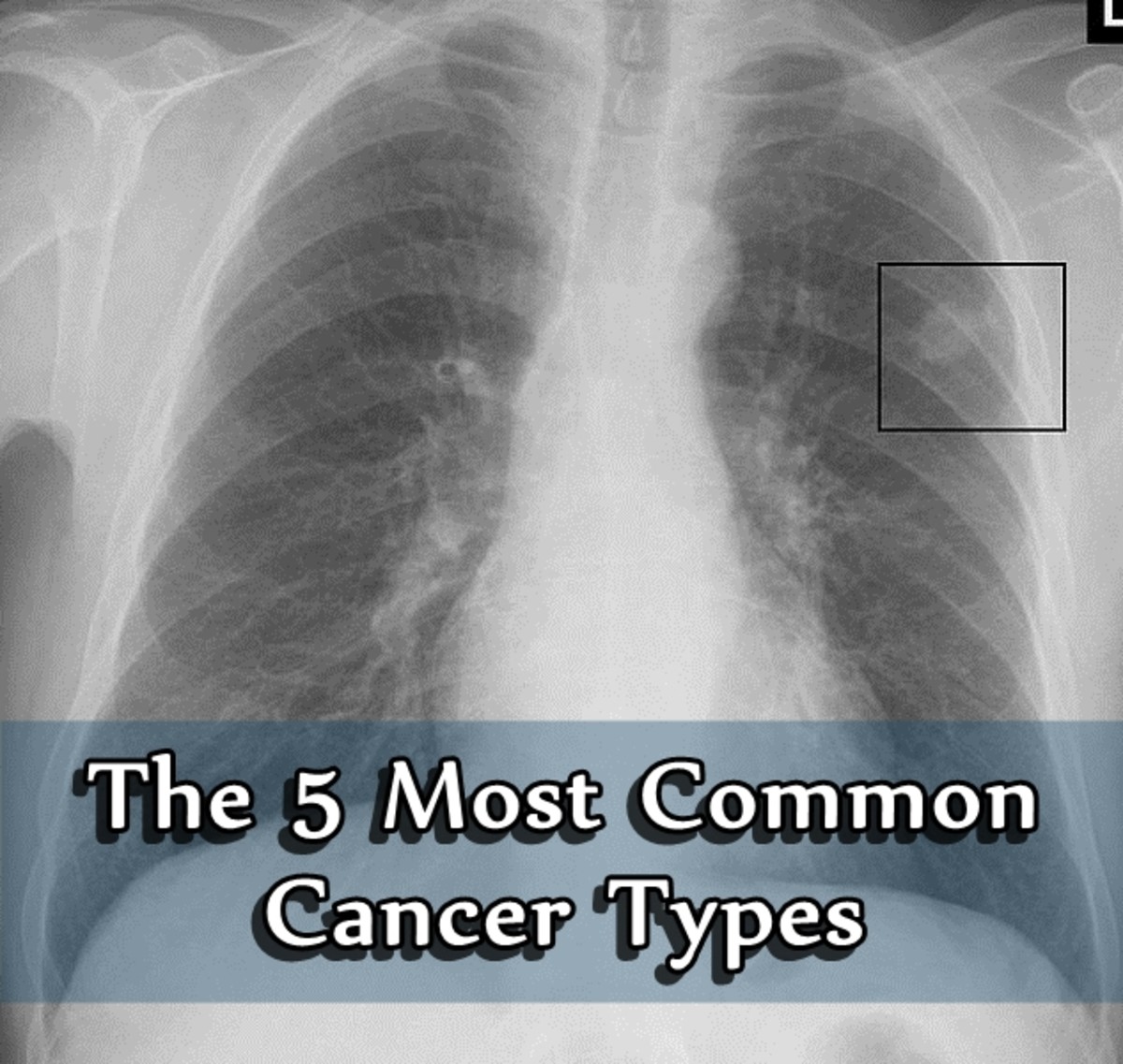My Mother's Fight with Vulvar Cancer

What All Women Should Know - But Probably Don't
I created this lens a little over a month after I lost my mother to Vulvar Cancer. She had been having various gynecological symptoms, but put off going to the doctor due to other health issues she was having. When she finally went she was quickly diagnosed with Stage III cancer.
My first thought upon hearing the news was "What the heck is Vulvar Cancer!? It was not a cancer I had heard anything about, and I soon discovered I was not the only one in the dark about this disease.
If I knew then what I know now it is possible that my mother might still be alive. At the very least I think her quality of life toward the end might have been improved. Unfortunately, although her doctors were able to completely kill all the localized cancer, it had already metastasized and moved into her lymph nodes, lungs and bones. She died just about a month after we received the news that the cancer had spread.
I built this lens as a sort of tribute to my mother. I can't think of anything she would like better than to know that other women learned from her experience and might live longer happy and productive lives because of it.
(Photo Credit: Wikimedia Commons) - One of my mother's favorite flowers - the African Violet
Vulvar Cancer accounts for approximately 4% of all gynecological cancers.
What Kind Of Cancer?
Many Women Have Never Heard Of This Disease
As its name implies, this disease occurs in the vulva - the area of skin that surrounds the urethra and vagina. This area includes the labia and the clitoris.
The first sign of this cancer is usually a lump or sore in the vulva, often found in the area between the labia and the anus. This lump/sore generally starts out as an "itchy" area, becoming painful over time.
The Initial Symptoms
If You Experience Any Of These - See Your Doctor!
The usual symptoms include any one or combination of the following:
* Itching that doesn't go away
* Pain and tenderness in the vulva
* Bleeding that isn't from menstruation
* Color changes to or thickening of the skin in the vulva
* A lump, wart-like bumps or an open sore
My mother was experiencing all these symptoms prior to being strongly encouraged by the family to visit her doctor, but women should treat any one of these symptoms as a sign of a possibly fatal disease and get themselves examined by a doctor immediately.
Staging Your Cancer
How To Know If It Has Spread
If you have been diagnosed with this cancer, the first thing you need to know is the extent to which it has spread throughout your body. Is it still very localized? Your doctor should conduct a number of different types of examinations to determine the size and extent of your cancer. This determination is called "staging."
At a minimum, your doctor should perform the following:
* Physical examination of your pelvic region
* Order imaging tests of not only the vulvar area, but also images of your chest and/or abdomen to better be able to determine if the cancer has spread. At the very least these tests should include x-rays, MRIs (magnetic resonance imaging), and CT (computerized topography) scans.
* PET scan. This test is often not performed because many insurers and/or medicare will not pay for the exam or require extensive examinations and paperwork submissions. My advice to you is work your doctor to get a PET scan! This is really the best test you can have, as it will show any signs of active cancer anywhere in your body. My mother's doctors did NOT perform a PET scan prior to beginning treatment. Had they done so, they would have found that the cancer had already metastasized to other parts of her body.
There Are Five Stages
Make Sure You Know Your Cancer Stage!
Stage I - indicates that there is a small tumor that is confined to the vulva or the area of skin between your vaginal opening and anus (perineum). The cancer has not yet spread to other areas of your body.
Stage II - indicates that there are cancerous tumors that have grown to include nearby parts of the body, such as the lower portions of the urethra, vagina and anus.
Stage III - indicates that the disease has spread to lymph nodes
Stage IVA - indicates that the cancer has spread not only to the lymph nodes but to other parts of the body, including but not restricted to the upper portions of the urethra or vagina, or that has spread to the bladder, rectum or pelvic bone.
Stage IVB - indicates that the cancer has spread to distant parts of your body.
Although my mother's cancer was originally staged at level 3, the doctors felt that they could control and/or eradicate the cancer via localized treatment such as radiation, chemotherapy and possibly a surgical follow-up. Had a PET scan been performed it is likely that the doctors would have staged her cancer at Level IVB.
A later PET scan, recommended by the radiologist and demanded by my father, showed that my mother's cancer had spread to her lymph nodes, lungs and bones - likely before treatment even began.
Initial Treatment Types
Radiation & Chemotherapy
Radiation and Chemotherapy are likely to be the doctor's first line of treatment.
Radiation therapy - A high-powered beam of energy (such as X-rays) are used to kill the cancer cells. In the case of vulvar cancer a treatment called "external beam radiation" is used. In this treatment a machine directs the radiation to very precise areas on affected area (skin). If the existing tumor is quite large, radiation will generally be used to shrink the cancer to make any future surgical removal succesfu.
Chemotherapy - involves treatment with chemicals, usually intravenously but sometimes by mouth, that are known to kill cancer cells. Chemotherapy is often combined with radiation, as the drugs used often make the cells more vulnerable to the radiation.
Has This Disease Affected YOUR Life?
Have you or someone you know had vulvar cancer?
Radical Treatment For Advanced Stages
There Are Many Types Of Sugery
If the cancer is diagnosed while it is still quite small and localized, a surgeon may be able to remove the entire area of cancer along with a small small margin of normal tissue. The removal of some of the surrounding normal tissue helps ensure that all of the cancer cells have been removed.
If the cancer is larger, a partial vulvectomy may be required. In this procedure a portion of the vulva and its underlying tissues are removed. In some cases a radical vulvectomy may be required. In these circumstances, the surgeon needs to remove the entire vulva, including the clitoris and any underlying tissue.
In the most extreme cases, when very large areas of the vulva contain cancer cells, the surgeon may need to perform a pelvic exenteration. In this circumstance, all of the vulva and the involved organs will be removed. Involved organs may include the lower colon, rectum, bladder, cervix, uterus, vagina, ovaries and nearby lymph nodes.
In addition to removal of malignant areas of the vulva, surgery may also be required to remove nearby lymph nodes to prevent the spread of cancer cells to other parts of the body.
The Two Cancer Types
Treatment Depends On Type
There are two types - Vulvar Squamous Cell Carcinoma and Vulvar Melanoma. The type of cell in which the cancer develops determines what type of cancer a woman has.
This is an important piece of information as it helps the doctor develop an appropriate plan of treatment.
Vulvar squamous cell carcinoma is the most common type. It starts on the surface of the vulva. .
.
Vulvar melanoma begins in the pigment-producing cells found in the skin of the vulva.
Risk Factors
Are You At Risk?
The exact cause of this cancer is currently unknown, but the following factors have been scientifically shown to increase your risk of developing the disease:
Increasing age
Although vulvar cancer can occur at any age, the risk increases with age. Currently, the average age at diagnosis is 65.
Exposure to HPV
Scientists have determined that HPV (Human Papilloma Virus) increases the risk of several cancers, including this one. This is another good reason to discuss vaccination for HPV for your teen-aged daughters or grand-daughters!
Smoking
Smoking cigarettes increases the risk of almost all cancers, including this one.
HIV Infection
Infection with HIV (Human Immunodeficiency Virus) weakens your immune system and increases your risk.
A History of Various Precancerous Conditions
These conditions include Vulvar intraepithelial neoplasia and Lichen sclerosus.
Of all the risk factors noted above, my mother had only one - increasing age. She was 73 years old when her cancer was diagnosed.
Learn More About Vulvar Cancer - Videos Worth Watching

Knowledge Is Power!
More Vulvar Cancer Resources
MedlinePlus
http://www.nlm.nih.gov/medlineplus/vulvarcancer.html
National Cancer Institute
http://www.cancer.gov/cancertopics/types/vulvar
FamilyDoctor
http://familydoctor.org/familydoctor/en/diseases-conditions/vulvar-cancer.printerview.all.html
American Cancer Society
http://www.cancer.org/cancer/vulvarcancer/detailedguide/vulvar-cancer-what-is-vulvar-cancer
MDJuntion - Vulvar Cancer Forum
http://www.mdjunction.com/forums/vulvar-cancer-discussions
Cancer.Net
http://www.cancer.net/cancer-types/vulvar-cancer
Mayo Clinic
http://www.mayoclinic.com/health/vulvar-cancer/DS00768
Armenian Medical Network
http://www.health.am/cr/vulvar-cancer/
University of Colorado Hospital
http://www.uch.edu/conditions/cancer/gynecologic-cancer/vulvar/
Cleveland Clinic
http://my.clevelandclinic.org/disorders/vulvar_cancer/hic_vulvar_cancer.aspx

Thank You for the Purple Star!
It Really Means a Lot!
This lens was difficult for me to put together so soon after my mother's death. I did, however, want to help other women and their families by providing them with information that might save their lives or the lives of someone they love.
So - when I arose less than 12 hours after publishing this lens, you can imagine how incredible it felt to find that I had been gifted with a coveted "Purple Star." I'm so glad that the lens was considered good enough for such an award! I also find it ironic that the "Purple Star" looks much like the African Violet, the flower that was one of my mom's favorite. Thank you Squidoo community!







